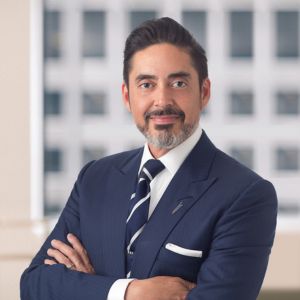HOLISTIC APPROACH
Too often discussions about investments are reduced to “the market” barometer to measure investments against a highly visible index. As a financial advisor you know that while the equity allocation might be the most volatile element of a client’s investment portfolio, it is far from the only aspect of their financial plan. CFA charterholders learn plenty about equity markets, but the program extends to the analysis of fixed income, alternative investments and portfolio construction, among other topics. This empowers your portfolio manager with a greater depth of understanding of the various asset classes and strategies offered by our research team so they can better connect those strategies to your clients’ goals and your planning expertise.
EXPERIENCE
The CFA Institute examination sits among the most challenging and prestigious charters available to financial professionals. Holding the charter requires a minimum of five years’ work experience in the investment world along with passing three levels of examination, the first of which had a pass rate below 40% in 2023.1
The intense course of study and the time dedicated to preparation identify CFA charterholders not only as academically accomplished, but rigorous in their dedication to improving their understanding of financial markets and portfolio construction.
HIGHER ETHICAL STANDARD
In addition to the ethical standards set by regulatory agencies, all CFA charterholders are bound to an additional ethical standard, the CFA Institute Code of Ethics and Standards of Professional Conduct. The exam includes extensive study and application of ethics principles to cases inspired by real-life events such that charterholders prove not just knowledge of the standards, but an understanding they can apply to managing your client assets.
BEHAVIORAL FINANCE EXPERTISE
Among the greatest challenges in working with clients is managing the emotional realities of weathering difficult market conditions. There are few ways a client can more quickly disrupt a carefully designed financial plan than by letting their emotional biases outweigh their appropriate risk tolerance. For this reason the CFA Institute educates charterholders on the nuances of behavioral finance and common investing biases that all people are susceptible to. Through this understanding the CFA charterholder in your corner can help keep clients focused on their plan.



.jpg)
